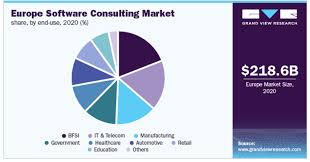Exploring the Future of IoT Software Development: Innovations and Transformations
IoT Software Development: Transforming the Future
The Internet of Things (IoT) is revolutionizing the way we interact with technology. By connecting everyday objects to the internet, IoT enables these devices to collect and exchange data, creating a network of smart devices that can be controlled remotely. This transformation is largely driven by advancements in IoT software development.
What is IoT Software Development?
IoT software development involves creating applications and platforms that allow devices to communicate with each other and with users. This includes developing firmware for sensors and controllers, middleware for connectivity, and user applications for monitoring and control.
Key Components of IoT Software
- Sensors and Devices: The hardware components that collect data from the physical environment.
- Connectivity: Protocols and networks that enable communication between devices.
- Data Processing: Software that processes data collected by sensors to extract meaningful insights.
- User Interface: Applications that allow users to interact with IoT systems, such as mobile apps or web dashboards.
The Role of IoT Developers
IoT developers play a crucial role in bringing smart solutions to life. They work on integrating various technologies to create seamless experiences for users. Their responsibilities include:
- Designing Architecture: Planning how different components of an IoT system will interact.
- Coding Firmware: Writing low-level code for sensors and microcontrollers.
- Developing Applications: Creating user interfaces and applications for device management.
- Ensuring Security: Implementing security measures to protect data privacy and prevent unauthorized access.
The Challenges of IoT Software Development
The field of IoT software development presents several challenges, including:
- Diverse Technologies: Integrating different hardware platforms, operating systems, and communication protocols can be complex.
- Scalability: Ensuring that IoT systems can handle large numbers of connected devices efficiently.
- Security Concerns: Protecting sensitive data from cyber threats is a top priority in any IoT solution.
The Future of IoT Software Development
The future looks promising for IoT software development as technology continues to evolve. With advancements in artificial intelligence (AI) and machine learning (ML), future IoT applications will become even more intelligent, offering predictive analytics and automation capabilities. As 5G networks expand globally, the increased bandwidth will enable faster communication between devices, further enhancing the potential of IoT solutions.
The possibilities are endless as industries ranging from healthcare to agriculture embrace IoT innovations. As developers continue to push boundaries, we can expect smarter cities, homes, industries, and more efficient resource management across sectors worldwide.
The journey into the world of connected devices is just beginning—driven by creative minds committed to making life simpler through innovative technology solutions. With continuous advancements in this field, it’s an exciting time for both developers and consumers alike!
7 Essential Tips for Successful IoT Software Development
- Understand the requirements and objectives clearly before starting development.
- Choose the right IoT platform that suits your project needs.
- Focus on security from the beginning to protect data and devices.
- Implement efficient data management strategies for handling large amounts of IoT data.
- Test your software thoroughly to ensure reliability and performance under different conditions.
- Consider scalability to accommodate future growth and increasing device connections.
- Stay updated with the latest IoT trends and technologies to enhance your development skills.
Understand the requirements and objectives clearly before starting development.
Understanding the requirements and objectives clearly before starting IoT software development is crucial for project success. By having a comprehensive grasp of what needs to be achieved and the desired outcomes, developers can create a roadmap that guides them throughout the development process. This clarity helps in making informed decisions, setting realistic goals, and ensuring that the final product aligns with the client’s expectations. Clear requirements also facilitate effective communication among team members and stakeholders, leading to a more streamlined and efficient development cycle.
Choose the right IoT platform that suits your project needs.
Selecting the appropriate IoT platform that aligns with the specific requirements of your project is crucial for successful IoT software development. The right platform can provide essential features and functionalities tailored to your project needs, ensuring seamless integration, scalability, and efficient data management. By carefully evaluating and choosing a suitable IoT platform, you can lay a solid foundation for building a robust and effective IoT solution that meets your objectives effectively.
Focus on security from the beginning to protect data and devices.
When embarking on IoT software development, it is crucial to prioritize security right from the start to safeguard both data and devices. By focusing on security measures early in the development process, such as implementing encryption protocols, access controls, and regular security audits, developers can mitigate potential vulnerabilities and ensure the integrity of the IoT ecosystem. Proactively addressing security concerns not only protects sensitive information but also fosters trust among users, ultimately leading to a more robust and reliable IoT solution.
Implement efficient data management strategies for handling large amounts of IoT data.
Implementing efficient data management strategies is crucial for handling the vast amounts of data generated by IoT devices. By optimizing how data is collected, stored, and processed, organizations can ensure that valuable insights are extracted in a timely manner. Utilizing techniques such as data compression, real-time analytics, and scalable storage solutions can help streamline the handling of IoT data, leading to improved performance and decision-making capabilities. Effective data management not only enhances operational efficiency but also paves the way for innovative applications and services in the realm of IoT software development.
Test your software thoroughly to ensure reliability and performance under different conditions.
Testing your IoT software thoroughly is essential to guarantee its reliability and performance across various conditions. By conducting comprehensive testing, you can identify and address potential issues before deployment, ensuring a seamless user experience. Testing under different scenarios helps uncover vulnerabilities and weaknesses, allowing you to fine-tune your software for optimal functionality. Prioritizing thorough testing not only enhances the quality of your IoT solution but also instills confidence in its ability to perform consistently in real-world environments.
Consider scalability to accommodate future growth and increasing device connections.
When delving into IoT software development, it is crucial to prioritize scalability to anticipate future growth and the rise in device connections. By designing systems that can easily expand and accommodate a larger number of connected devices, developers ensure that their solutions remain efficient and effective as the IoT ecosystem evolves. Scalability not only future-proofs the software but also enables seamless integration of new devices and functionalities, fostering a sustainable and adaptable IoT infrastructure.
Stay updated with the latest IoT trends and technologies to enhance your development skills.
Staying updated with the latest IoT trends and technologies is essential for enhancing your development skills in this rapidly evolving field. By keeping abreast of new advancements, you can gain valuable insights into innovative solutions and best practices that can elevate your IoT software development capabilities. Embracing continuous learning and staying informed about emerging trends will not only expand your knowledge base but also empower you to create cutting-edge IoT applications that meet the evolving needs of users and businesses.




